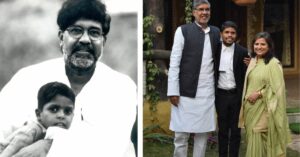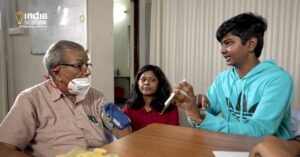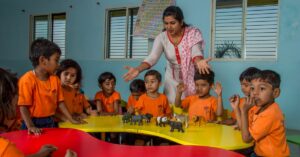A Journey to Uncover the Source of Kargil’s Communal Harmony
The Kargil district of Ladakh region is a confluence of different religions, ethnicity, and cultures, where people respect each other's differences.
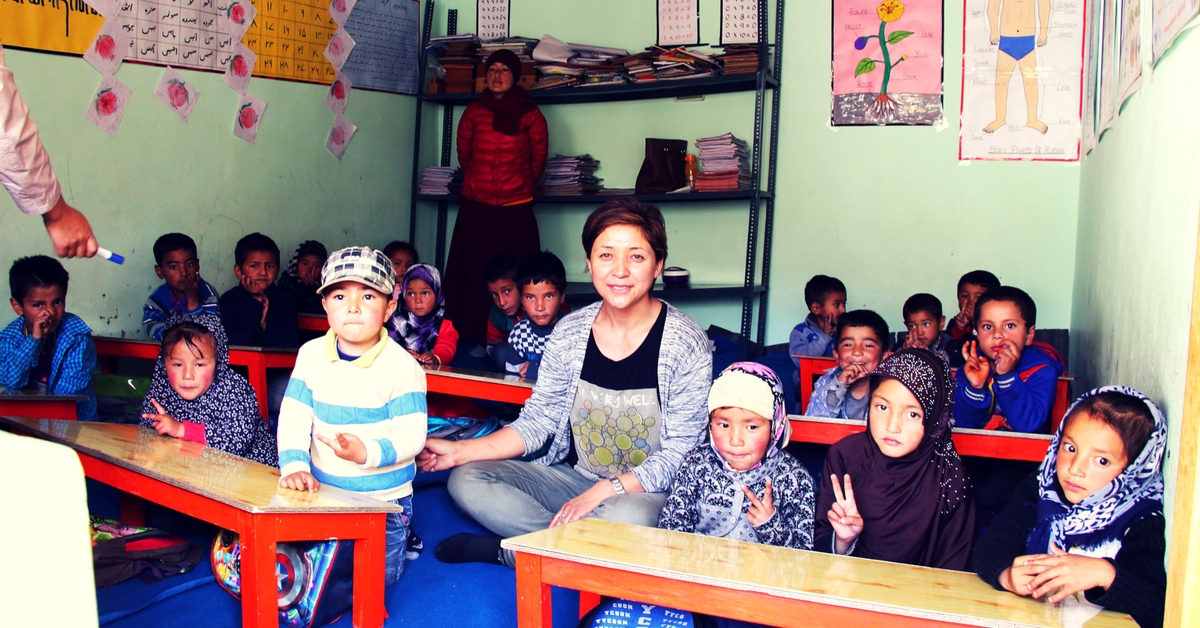
“The highest result of education is tolerance.” This quote by Helen Keller randomly wandered through my mind as I landed in Kargil, a part of the Indian state of Jammu and Kashmir. Tolerance is one value that is still trying to earn its place in the minds of people on this planet. Educating young minds about humanity, equality and the diverse cultures is the need of the hour. Communal differences and bitterness for each other’s culture and religion is leading the world in to such despair that humanity is losing its grip.
For a diverse country like India, religious extremism is a great challenge. And even more so for the state of Jammu and Kashmir, which is often in the news for all the wrong reasons. But there exists a different side to it. The Kargil district in the Ladakh region is a confluence of different religions, ethnicity, and cultures. Here, the people of different communities live peacefully and also respect each other’s differences.
Kargil is a beautiful amalgamation of the cultures of Purigs, Shinas, Baltis and the Dards. I hardly observed any bitterness among the people towards those from a different community. I, along with my Buddhist friend, was happily welcomed by the Muslims that form the majority in the area.
I was, in fact, surprised to see an old mosque sharing its wall with a gurudwara.
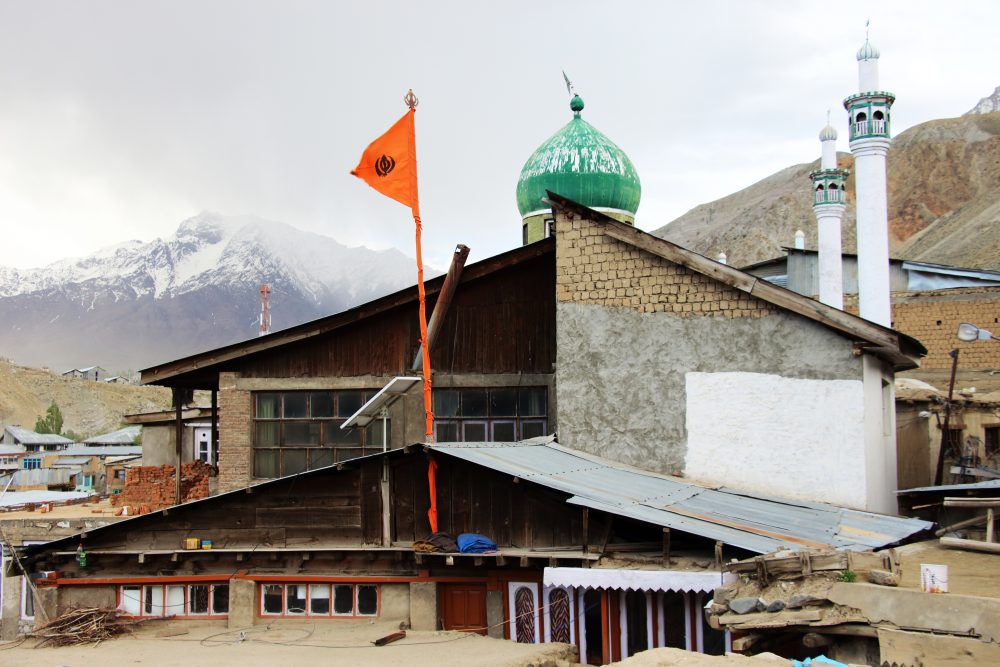
And I could really feel the divinity when I heard guruvaani and azaan on the same street. Indeed, people of different faiths effortlessly live here in complete harmony.
I also got an opportunity to discuss the unique beauty of Kargil with Ajaz Munshi, whose family has been devotedly working towards the betterment of Kargil.
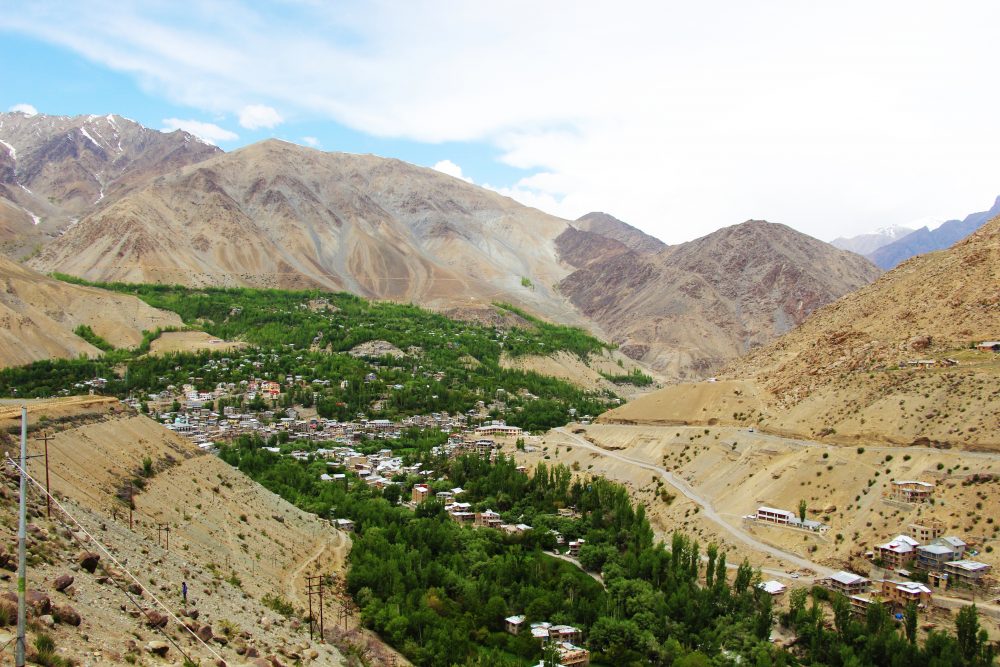
Apart from nurturing brotherhood in Kargil, he considers secular education as an important factor in making the youth gain independent discretionary thinking. He proudly stated that despite there being a Muslim majority, the district of Kargil has always shown its strong support to India and has been proud of being a part of this nation.
When he told me about his school, which was the first secular school in Kargil offering unbiased education, I immediately planned to visit and meet the children. I wondered if a secular environment could have any impact on their minds.
The next day, I reached the school during their morning assembly, expecting to hear just Muslim prayers.
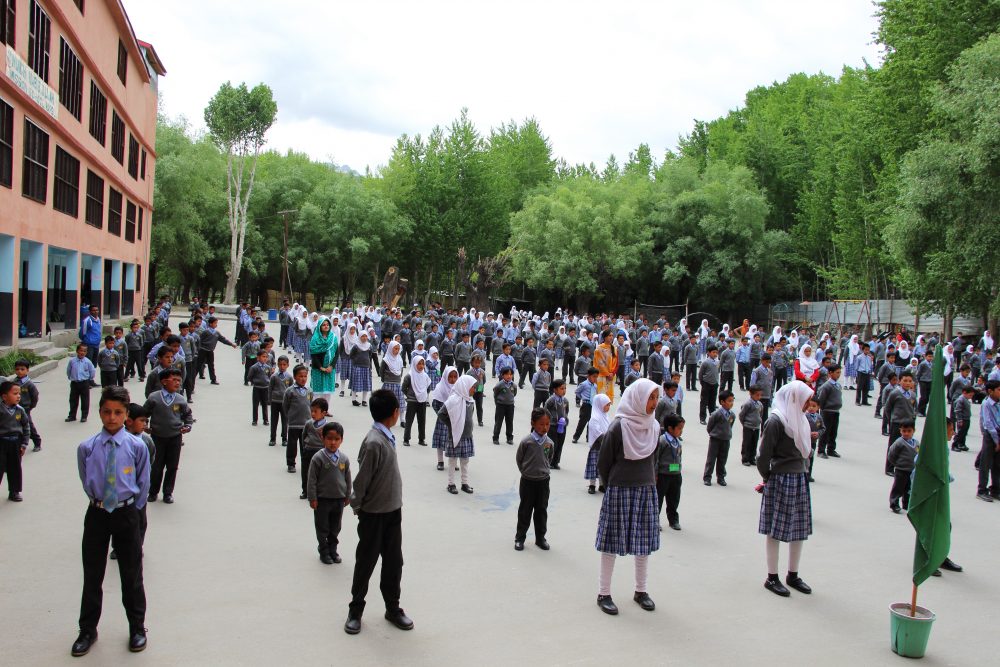
But the kids here stunned me as they sang, “Bhasha ki taqrar nahin, mazhab ki diwar nahin, inki nazaron mein ek hain, mandir, masjid, gurudware…”. (No dispute over language, no walls between different religions, as the temples, mosques, and gurudwaras are all equal in front of our eyes).
After the prayers, as the children proceeded towards their classes, a few of them stopped to greet us with a broad smile. I couldn’t stop myself from asking their names and invited them for some casual conversation. “Lakshmi and I are best friends and even our parents are good friends. This year, we will also enjoy Eid together, as my parents have already invited Lakshmi’s parents for the feast,” said Zainab. She is a class 7 Muslim girl, who also actively participates in the cultural program along with other students. They all agreed that the best part about the school was its activities that brought them all together.
Shivam, a class 5 student, loved playing with Ali and Asif the most. He also loved the ethnic food festival held every year in the school as he enjoyed cooking traditional dishes of the state. Tsewang, a Buddhist student, on the other hand, loved it as he could eat a variety of traditional dishes from Punjab, South India, Purig, Shina, Balti, Tibetan, and Ladakhi regions. In order to break the ice among parents, the school also involved them in cultural competitions.
Rafiya, another chirpy kid, proudly announced that she liked dressing up as a Balti girl during the ethnic fashion show. This show aims at exposing the kids to the traditional dresses of all cultures. A Sikh teacher, who had just joined the school, told me that the children had respect for all the religions and communities.
She said that the students made new students and teachers from different communities feel comfortable by teaching them the local language. They talk about their customs among other things, and their favourite topic of discussion is general knowledge. The students compulsorily discuss at least five thought-provoking GK questions in the assembly, and it continues throughout the day during their free time.
The future is indeed bright, I told my friend Sadiq Ali, who had accompanied me to this school. His brother had also been an integral part of the planning of such a secular system in the school. Then he took me to another secular school established by Yangchen Dolma. The Muslim students here devotedly study Bodhik (Bhoti) language as their parents want the kids to learn the Purig script, which is similar to the Bodhik script.
Yangchen said that she has provided the options of learning Bhoti or Urdu. She added that even she was surprised when many Muslims in Kargil opted to learn Bhoti. One such person was a grandfather of a nursery kid, Zarin. The grandfather wants the little girl to be an ‘Amchi’, a Tibetan medicine expert, once she grows up. And thus, he made it a point that his granddaughter studies Bhoti.
Yangchen is from a small Ladakhi village called Tismosgang, and she is the first female educator to establish a school in Kargil.
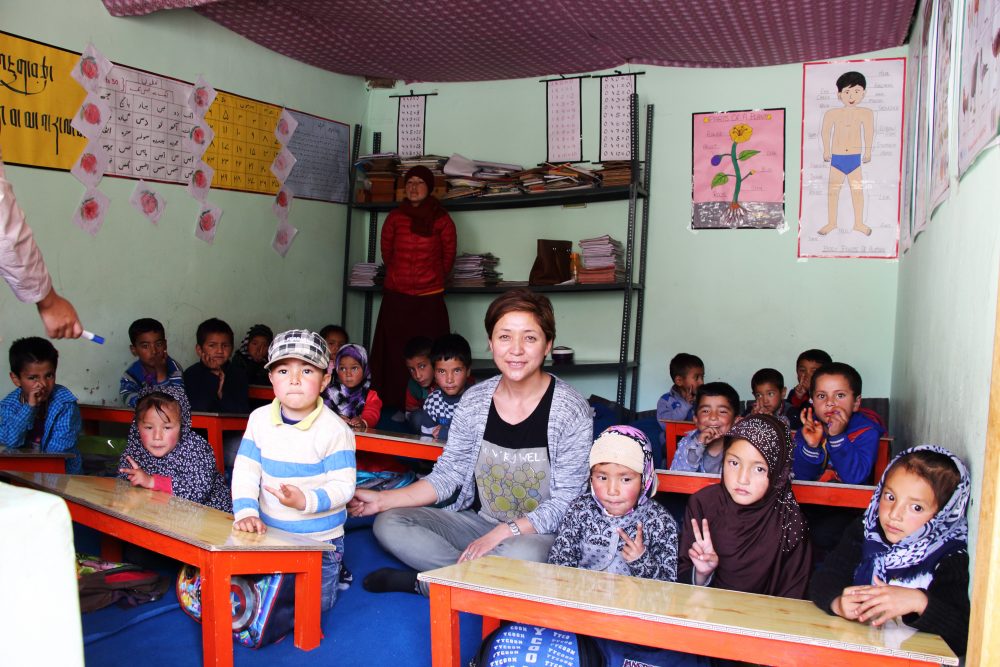
Sharing her experience as an outsider, she told us that the people, including the personnel of education department’s office, have always been very co-operative and helpful. A few parents have even appreciated her effort of starting a school with CBSE curriculum, which is activity-centric. The parents are now interested in an education system that really develops the all-round persona of the child, without teaching any prejudice for other communities.
The schools also welcome volunteers from all over the world, so that the students get the exposure and an opportunity to be with people from different nationalities. I think it’s about time we introduce more such schools in the rest of the world.
(Written by Purvi Kamaliya)
Like this story? Or have something to share?
Write to us: [email protected]
Connect with us on Facebook and Twitter.
NEW: Click here to get positive news on WhatsApp!
This story made me
- 97
- 121
- 89
- 167
Tell Us More
We bring stories straight from the heart of India, to inspire millions and create a wave of impact. Our positive movement is growing bigger everyday, and we would love for you to join it.
Please contribute whatever you can, every little penny helps our team in bringing you more stories that support dreams and spread hope.






